Dead Cells on Switch
Without satisfying combat, traversal, and upgrade systems, roguelike games will struggle to keep players coming back for countless more runs. Essentially starting the game again each time, trying to improve as you go, will only be frustrating if there isn’t more to enjoy beyond the general premise. Motion Twin’s game, Dead Cells, has just left early access, and it combines a great mix of roguelike and Metroidvania ideas with gameplay that is among the best the genres have ever seen.
You play as a collection of cells that take control of a headless body and you must fight your way through the island’s 17 areas, taking on the enemies that guard them, in an attempt to escape. Each time you die, you start again, attempting to learn about the enemies you’ll encounter the next time, and how best to approach them. Death doesn’t see you leave entirely empty-handed, however, because you can spend any cells you collect from killing enemies at a Collector between levels, unlocking more health flasks, the ability to start with random weapons, and other cool gadgets. As you get access to more useful gear, and learn how each of the areas work, you improve and get further, with the ultimate aim being beating the final boss and escaping. That may sound quite standard for roguelike games, but every little thing you do in Dead Cells is incredibly satisfying.
Playing Dead Cells isn’t just a case of running through the world, taking out everything in your way, however. Your approach needs to be more considered than that. Each area, which range from grimy sewers to spotless castle hallways, keep the same general shape and enemy type in each run, but their exact layout is procedurally generated. You’ll quickly learn what you’re likely to find, and the general area in which you’re going to find it, but exploration is key. More powerful weapons, stat upgrades, shops, and cell stashes will be hidden, and you may need to comb through an entire level to find them and see yourself head into the next stage as powerful as possible.
However, methodical exploration may not be the best option for a particular run. Each area, after the starting Prisoners’ Quarters, has a door that leads to additional upgrades and loot, but it closes after a set period of time. If you explore the previous areas, you won’t make it in time, and you’ll have to continue with what you already have. If your starting weapons fit your preferred play style, it might be clever to race through to pick up the extra loot, but a poor start may see you want to find everything you can to help. Exploring will also see you face more enemies, and maybe come across more powerful, elite ones. It can be a delicate balancing act, where you need to decide early on what is best for a particular run, and that adds a fun tactical element on top of the base statistics you need to consider.
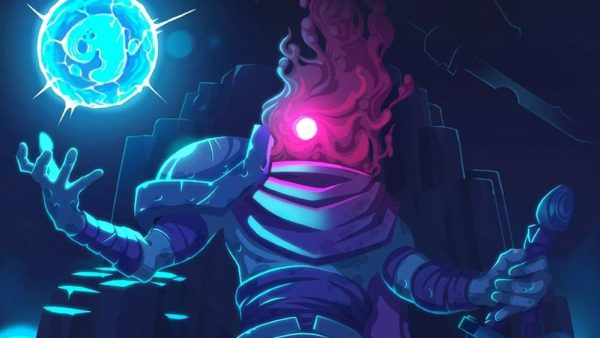
Taking it slow will also see you get more cells to spend on important upgrades, which can grant you advantages such as a gold supply that carries over between runs, and the ability to use up to four health potions. Progression in terms of meaningful unlocks can be a little slow after a few hours, especially if you’re struggling with a particular level or boss, but the fact that each run is seeing you work towards something makes each one important. Even if you die quite early, you’re a step closer to improvement, and that makes Dead Cells so tough to put down. With each run lasting maybe 15 or 20 minutes (longer if you’re reaching the end), it’s a great game to pick up and play in short bursts. A quick run before bed or one on the train; it’s perfect for that, and each one sees you do something that’s pushing you further towards a full run.
Dead Cells’ Metroidvania elements are linked to permanent upgrades too. Most levels will have areas you can’t reach from the start, whether they’re locked away or past walls that cannot be climbed with the standard double jump. As you progress and beat the game’s excellent bosses, you’ll be granted runes that give you skills to reach other areas. This gives you another reason to explore and experiment with your approach to a run. You might want to head though different areas, taking advantage of your particular loadout. This, on top of the difficult modifiers that come with completing full runs, gives Dead Cells huge replay value. Weapon loadouts, the paths you take, and the enemies you face can all change run to run, and that keeps the loop feeling fresh.
It’s the combat and how well your character controls that makes Dead Cells shine, however. Whether you’re taking pot shots from safety with a bow, or combining the Frost Blast and rapid Balanced Blade to tear through groups of foes, everything feels precise and ensures that you’re in control. Certain enemies are more susceptible to particular weapons, so you’ll need to dodge roll, Souls style, through attacks to slash at enemies from behind. There’s also a lot of freedom to your character’s movements. You can chain double jumps, dodge rolls, and devastating slams seamlessly, and the forgiving movement makes that possible. Aside from when you need to avoid spikes, there’s generally no need to be precise with your leaps. Your character will grab onto ledges and pull himself up without much input on your part, and he’s always ready to attack, ensuring that the action continues to flow. All that contributes to a intensely satisfying momentum to Dead Cells gameplay. Chaining elemental powers, dodge rolls, and sword action, as you power through a run, all without slowing down, feels phenomenal. The frame-rate can drop at times on the Switch, but it never takes control away from you.
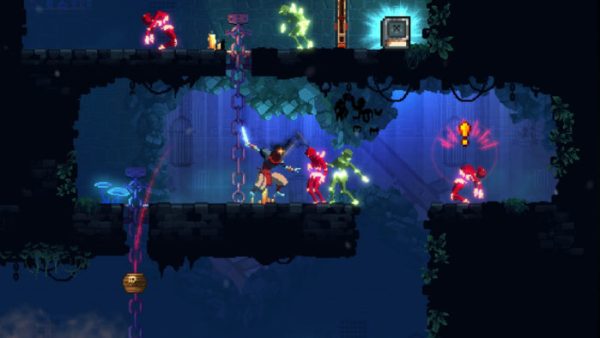
The weapons that allow for the fastest approach may not always be the smartest, though. Runs are kept fresh by forcing you to test out new weapons and attack combinations. You might prefer the speedier blades but be given a shield and a weapon that forces you to kick enemies at the start, which require more precise attack patterns, and you’ll learn how they benefit you. They might lead you to avoiding certain enemies and taking a different path, but that only gives you more to learn and enjoy, even if you struggle. Dead Cells is tough, very tough at times, and you’ll want to learn how to use every weapon to their full potential, while figuring out what loadout suits you. The fact that it’s down to you to work it out through experimentation, however, ensures that the combat never feels unfair. Failing simply means you haven’t worked out the best way to approach an area, and that keeps it compelling.
After a few hours, I learned the power of tactics upgrades and weapons. The aforementioned Frost Blast, which freezes the enemies in front of you, the powerful bows you unlock later on, and, most importantly, the turrets and traps, are vital against bosses and the speedier enemies. Focusing on tactics upgrades, and combining Wolf Traps and the Double Crossbow turret to keep enemies pinned down and under fire became my loadout of choice because, although it made progression slower in parts, it kept enemies occupied and me out of trouble, but preferences could differ.
It also cannot be ignored how beautiful Dead Cells is. In some areas –the Ramparts entrance being a particular highlight –the background and themed colors are gorgeous. Whether it be bathing a castle top in the orange glow of a setting sun, or the neon greens highlighting the grime of the sewers, the unique themes stand out. There’s also a lot of detail where you might not expect it. Between the moments of action, look closely at the background of outside areas, or at the way enemies almost explode as you kill them, blood splattering on the wall and floors. It looks phenomenal throughout.
Dead Cells is an incredible mix of well designed elements. The compelling die, upgrade, improve loop is complemented by a risk and reward Metroidvania-inspired level design, and each run is made to feel fresh with different layouts and varied weapons, but it’s the excellent combat and traversal that stand out. Every run is extremely satisfying, whether you revel in taking out just a few enemies, or get all the way to the end. Dead Cells is a wonderfully complete experience that is so difficult to put down.
Score: 4.5/5 – Great
Pros
| Cons
|
For more information on how we review games, check out Twinfinite’s review policy here.



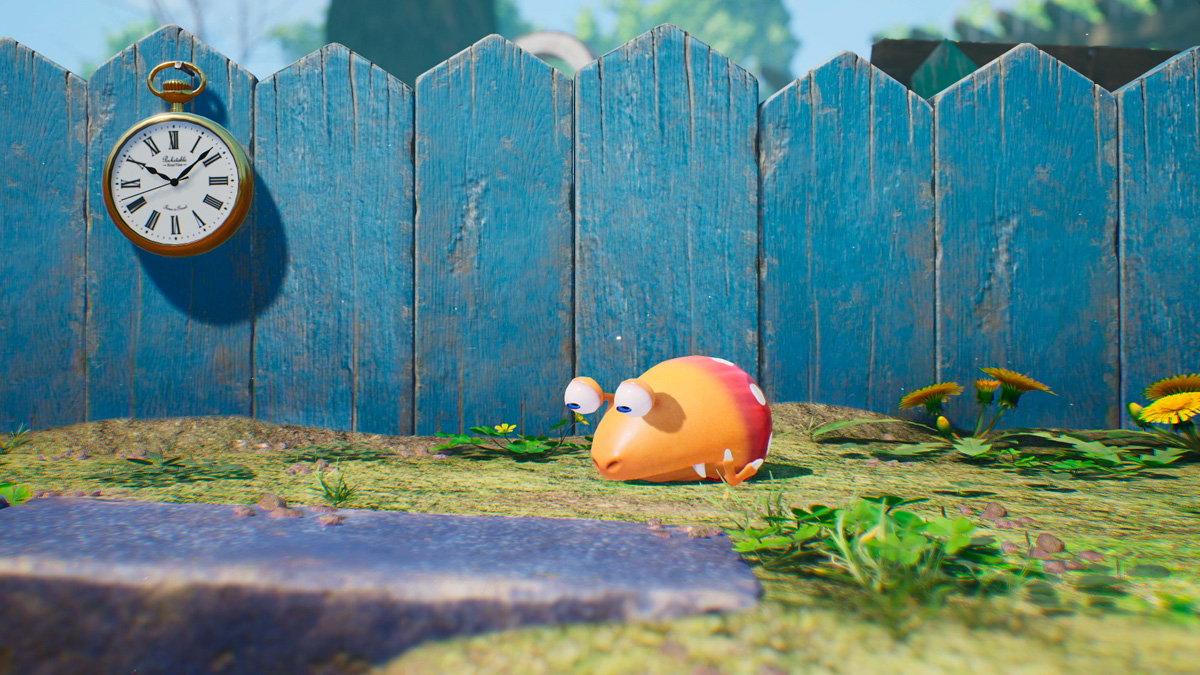


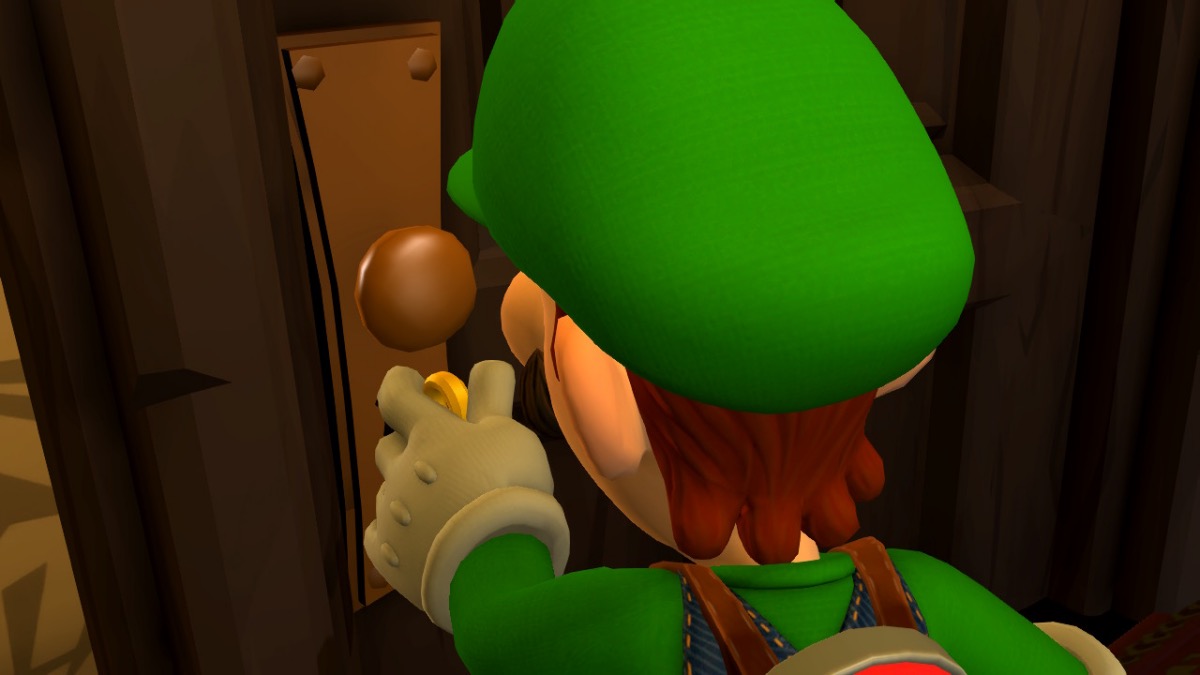





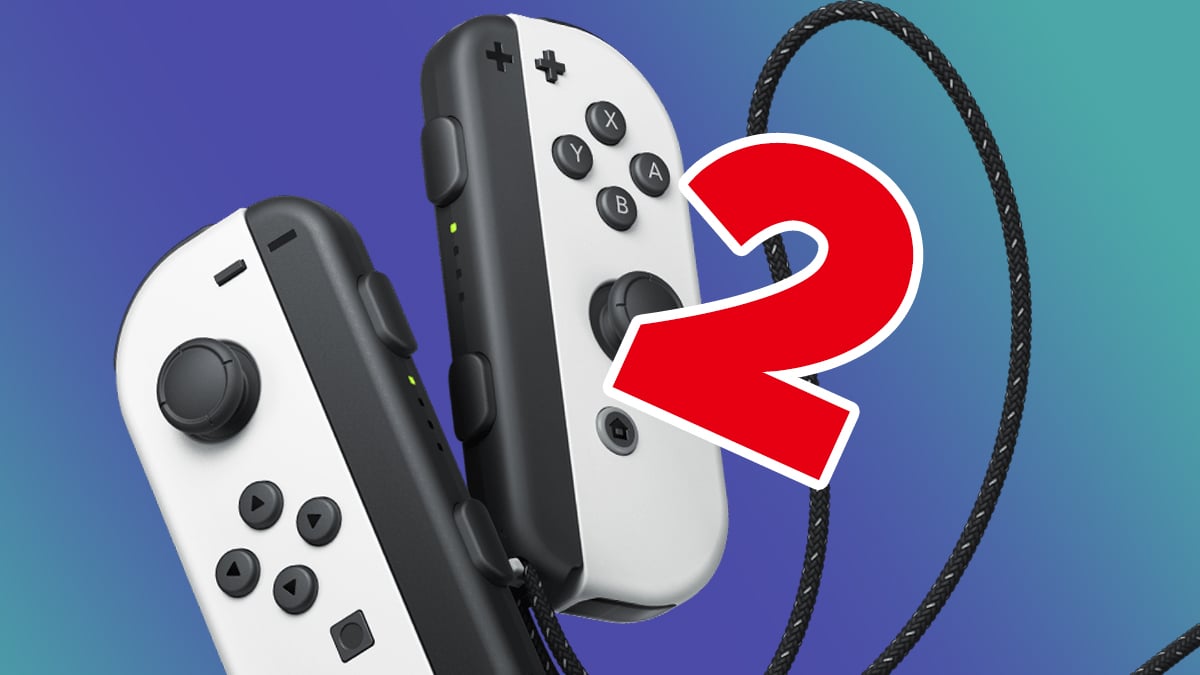

Updated: Aug 15, 2018 09:45 pm